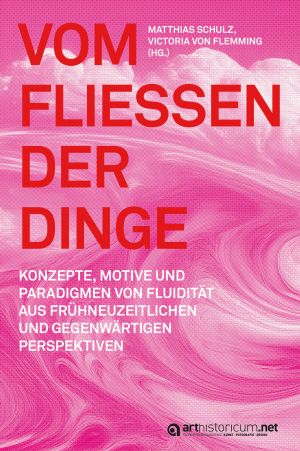
How to Cite
License

This work is licensed under a Creative Commons Attribution-NonCommercial 4.0 International License.
Identifiers
Published
Vom Fließen der Dinge
Konzepte, Motive und Paradigmen von Fluidität aus frühneuzeitlichen und gegenwärtigen Perspektiven
The idea that the beginnings of the universe do not lie in the solid, hard, rigid, but also not simply in the opposite, the flowing and streaming, has occupied natural philosophical reflections for thousands of years. To this day, however, a binary-structured view of the world has unfolded in all its power. Impulses can already be identified in the early modern history of ideas and images that undermine the supposedly static, immobile and instead emphasise the changeable, ephemeral and dynamic. Stasis is dynamised and subjected to transformation in many different ways and in just as many different areas. The contributions in this volume present case studies from philosophical, physical, geoscientific, climatological and art scientific perspectives that bring the phenomenon within an interdisciplinary spectrum






